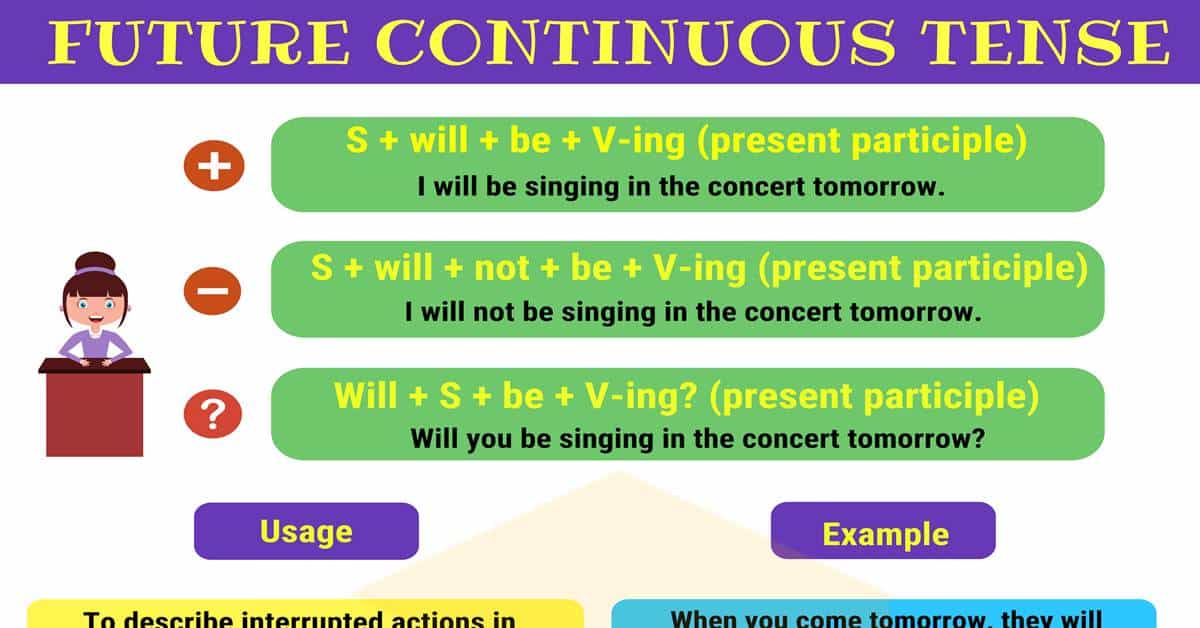Introduction
Tense is a term in English grammar and refers to a form of the verb that indicates time. Time is a universal, non-linguistic concept with three divisions - Past, Present and Future; by tense, we understand the correspondence between the form of the verb and our concept of time. When making a statement it is essential to indicate whether a situation exists now, existed in the past or is likely to exist in the future.
The future continuous tense, also known as the future progressive tense, is a verb tense that indicates that something will happen in the future and will last for an expected amount of time. It is formed by combining will + be + present participle (the root verb + -ing).
Future Continuous Tense - Rules and Examples | English Grammar
✅ Rule 1
It indicates an action that will be going on in the future. It is usually accompanied by another simultaneous action; as,
- I shall be sleeping when you will be going for a walk.
✅ Rule 2
We use this tense to talk about actions in the future which are already planned or which are expected to
happen in the normal course of things; as,
- I will be staying here till Sunday.
Note: With the future continuous we normally mention the future time (next Friday etc.)
✅ Rule 3
This tense is used to indicate that a longer action in the future will be interrupted. The interruption is usually an action in the simple future; as,
- I will be sleeping when my sister arrives.
✅ Rule 4
It is used to mention a specific time as an interruption; as,
- At midnight tonight, we will still be driving through the desert.
✅ Affirmative Sentences
Pattern:
➤ Subject + will be/shall be + verb (ing) + object.
- I shall be seeing him next week.
- I shall be staying in this hotel tomorrow morning.
- They will be travelling at this time.
- The children will be doing their homework.
✅ Negative Sentences
Pattern:
➤ Subject + will/shall + not + be + verb (ing) + object.
- They will not be having food this time.
- I shall not be doing my work that day.
- The children will not be learning their lesson.
- The boatman will not be rowing this boat.
✅ Interrogative Sentences
Pattern:
➤ Will/Shall + subject + be + verb (ing) + object?
➤ Q.W. + will/shall + subject + be + verb (ing) + object?
- Will you be coming here tomorrow?
- Who will be doing your work that day?
- How will you be doing this work?
- Will he be preparing for his examination there?
✅ Interrogative Negative Sentences
Pattern:
➤ Will/Shall + subject + not + be + verb (ing) + object?
➤ Q.W. + will/shall + subject + not + be + verb (ing) + object?
- Will you not be playing ludo that time?
- Shall we not be having our food there?
- Why will they not be whitewashing the house today?
- Why will he not be talking to me?
You May Also Like 👇
Loading...

